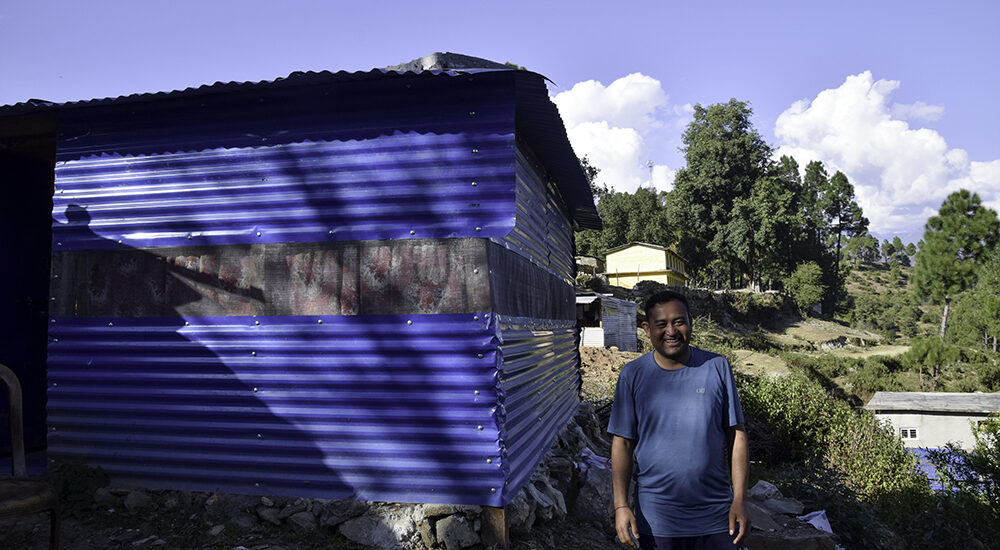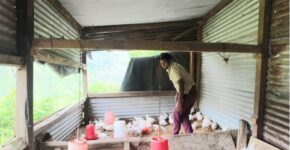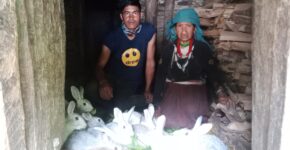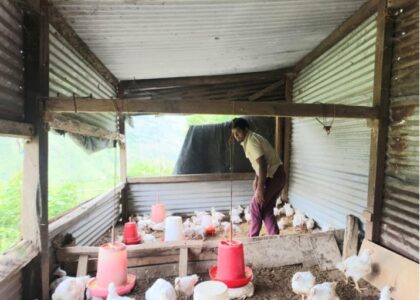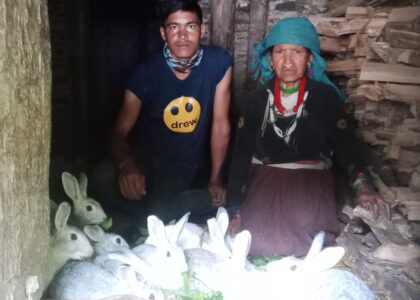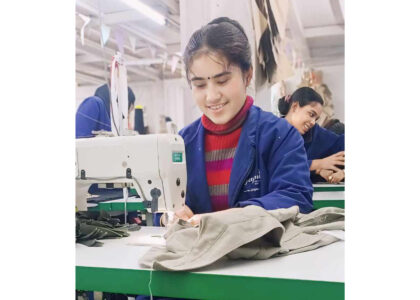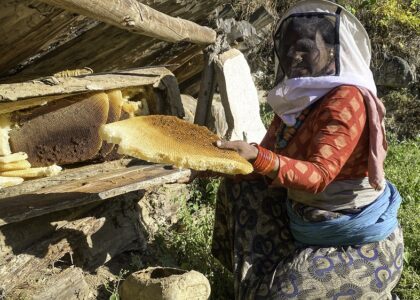Thalara-7, Athabis, Bajhang local resident, Singe Aagti (42 years old) family ancestral occupation (metalsmith) is forge. At that time, there were many houses in his village that practiced this profession. However, today, no one does this work that their ancestors used to do. Singe is the only one in the entire village who is still practicing the old profession in the village.
He lived in Kerala, India, as a wage laborer for about 10 years. With his hard work, he could save only 4-5 thousand per month. The COVID lockdown took away his work. Then he was forced to return to his village. After returning to the village, he wanted to do some work or business in his own village. At the same time, he got an opportunity to join the Sirjana project. He was delighted that the project would help him commercialize his ancestral skills and profession.
Born into a metalsmith family with Forge’s skills in his blood, he got a lot of support from the project to make metalsmithing a profession. He got the help of other tools like a solar panel, an electric fan, a heating cube, a hammer, iron cutting, and heating equipment. Then he started his forge business. The villagers were also happy to see him doing a profession that was neglected by everyone. Because they were suffering without a forge. Agricultural tools such as the sickle, hand saw, axe, hoe, chopper, spade, etc. are widely used in the fields. Villagers had to go far to get this equipment, but they are happy to get it from their own village in Singe.
He says, “I worked really hard in India. But it has become much easier with the support of the Sirjana project doing its own business.” There is a crowd of people coming to his house early in the morning to do work. Most of them come to make forged knives, spades, hoes, etc. Especially during major festivals like Dashain and Tihar and during the farming and harvesting seasons, there is more work pressure. Because at that time there is a lot of use of tools and equipment.
He earns up to Rs. 3,000 daily from his forge business. He says, “There is no one to do this work; that’s why my business is more profitable. People come to me because of my skills and work.” His earnings cover business income taxes, electricity bills, and a family of seven members. Apart from that, he is also active in social work, a community-saving program in the village, and helping the community in need.
He recalls being saddened by the suffering in India. But he is very happy to stay with his family and do business with the help of the Sirjana project in his own home. He says, “I won’t leave my home anymore; I am happy working and living with my family. The villagers are also happy with my work. They are happy to see me practicing the ancestral profession that they all left, and they all come to get worked, and so am I equally happy with them.”
In the multi-caste country of Nepal, many tribes have their own ancestral professions. But the number of people taking up the profession has decreased. Because today’s generation wants to go to the city to earn, or even abroad, as long as they can. Singe is a representative and exemplary person in this context. He gives the message that one can modernize the profession of ancestors, making it a good fortune, while still staying with the family in Nepal.


